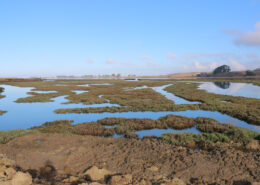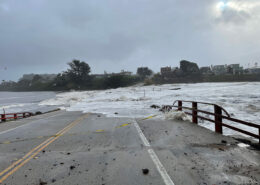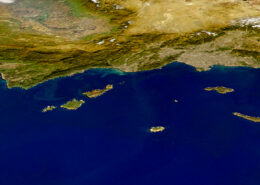Commitment to Diversity, Equity, and Inclusion
Systemic bias and institutional marginalization of individuals and communities is pervasive throughout all aspects of our society based on, but not limited to, race, gender identity, age, ethnicity, sexual orientation, disability, socioeconomic status, culture, and religion. We are committed to fostering a culture of equity and inclusion within our organization, to embrace and honor the unique identities of all of our current and future staff, partners, and colleagues.
Working at the science-policy interface, we also see these inequalities reflected in the ocean and coastal science landscape, including disparities in access to education opportunities, access to coastal environments, climate change resilience, and meaningful coastal and ocean policy engagement, among many others. We are committed to challenging these systemic problems by proactively building relationships and partnerships that redistribute power to marginalized and historically excluded communities, and amplify their voices.
Serving one of the most diverse states in the country, we believe that it is impossible to develop effective and equitable solutions to climate change and its disproportionate impact on frontline communities without including a broad set of perspectives, lived experiences, and ways of knowing. Moreover, we acknowledge that we must approach our work through the broader context of California’s history of inequities, including forced displacement, environmental racism, and unjust land use and acquisition. We are committed to elevating values of equity and inclusion in our work and organizational decision-making, maintaining a culture of continuous learning, and publicly sharing our progress.
1We use the following definition of frontline communities to “include lower-income communities, communities of color, Indigenous peoples and Tribal nations, and immigrant communities who are especially vulnerable to the impacts of climate change because of decades-long, pervasive socioeconomic conditions that are perpetuated by systems of inequitable power and resource distribution” (Mohnot, Bishop, and Sanchez, 2019).

 https://www.oceansciencetrust.org/wp-content/uploads/2025/02/daniel-sinoca-QsCIe9JeUwc-unsplash.jpg
1024
1820
Jill Harris
https://live-oceansciencetrust.pantheonsite.io/wp-content/uploads/2020/11/Horizontal_Transparency_cropped-300x70.png
Jill Harris2025-02-10 18:40:062025-02-20 20:55:59Lesson from the National Working Waterfront Network
https://www.oceansciencetrust.org/wp-content/uploads/2025/02/daniel-sinoca-QsCIe9JeUwc-unsplash.jpg
1024
1820
Jill Harris
https://live-oceansciencetrust.pantheonsite.io/wp-content/uploads/2020/11/Horizontal_Transparency_cropped-300x70.png
Jill Harris2025-02-10 18:40:062025-02-20 20:55:59Lesson from the National Working Waterfront Network











